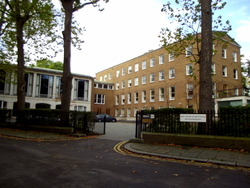
A qualitative study has examined the experiences of women receiving acupuncture treatment for polycystic ovary syndrome. Researchers interviewed eight women (age range 23 to 38) living in western Sweden, after they had received a course of acupuncture, and found that the positive results of acupuncture, were providing hope that their bodies were capable of more normal functioning, and were empowering them to take responsibility for their future wellbeing. Half of them experienced noticeable changes in their symptoms, and associated acupuncture treatment with improvements, for example, in more regular menstrual bleeding, decreased hair growth, improved mood, reduced sweet cravings and decreased acne.
(Acupuncture with Manual and Low Frequency Electrical Stimulation as Experienced by Women with Polycystic Ovary Syndrome: A Qualitative Study. BMC Complementary Altern Medicine, April 2012.)

 The UK’s Royal College of Obstetricians and Gynaecologists, has published an opinion paper supporting the use of acupuncture and Chinese herbs in the treatment of chronic pelvic pain (CPP) in women. It is estimated that one in six women are affected by CPP which can be defined as intermittent or constant pain in the lower abdomen or pelvis for over six months.
The UK’s Royal College of Obstetricians and Gynaecologists, has published an opinion paper supporting the use of acupuncture and Chinese herbs in the treatment of chronic pelvic pain (CPP) in women. It is estimated that one in six women are affected by CPP which can be defined as intermittent or constant pain in the lower abdomen or pelvis for over six months. 